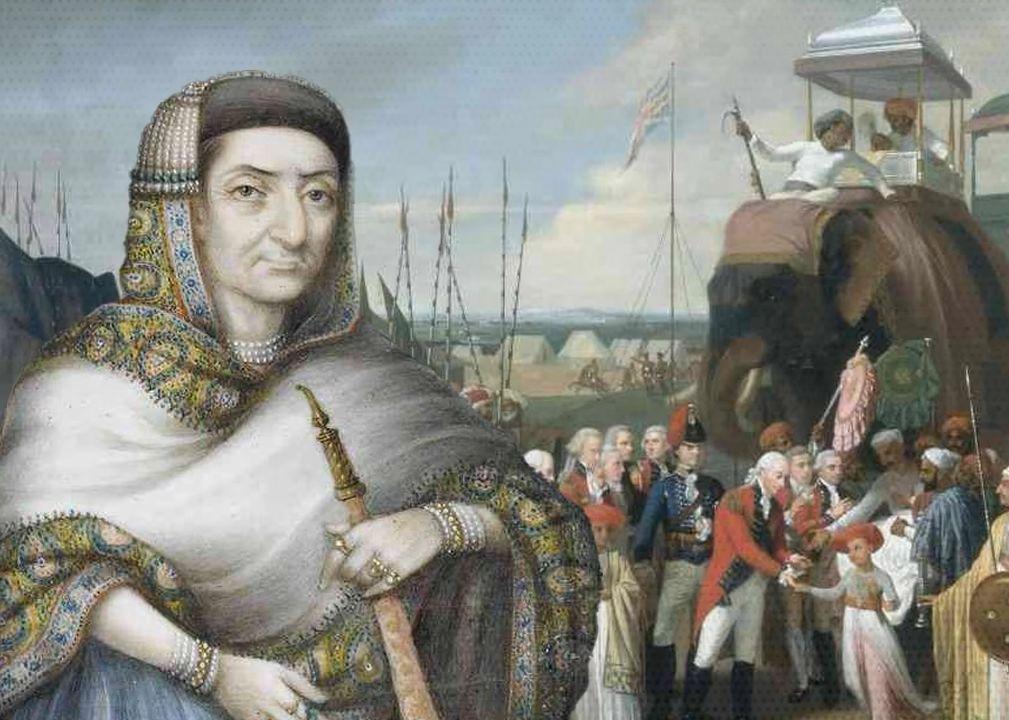
Women Entrepreneurs in Indian History: Begum Samru & Jibhabu
India has a rich tapestry of entrepreneurial stories, with women playing a significant role in shaping the country’s history. From the 18th to the 19th centuries, two remarkable women, Begum Samru and Jibhabu of Gujarat, left an indelible mark on Indian history with their financial expertise, strategic leadership, and defiance of societal norms.
Begum Samru: The Diplomatic Ruler
Born as Imhoffa in 1753, Begum Samru was a German woman who rose to prominence in India during the 18th century. She was a skilled dancer and was brought to India by the French East India Company, where she became a favorite of the nawab of Oudh, Shuja-ud-Daula. After Shuja’s death, Begum Samru married the nawab’s son, Saadat Ali Khan, and became the ruler of a 621-square km estate in Sardhana.
Begum Samru’s diplomatic prowess was instrumental in maintaining peace and prosperity in her estate. She skillfully navigated the complex web of alliances and rivalries between the British, French, and Mughal empires, ensuring the stability of her domain. Her diplomatic efforts earned her the respect and admiration of her contemporaries, who praised her for her wisdom and strategic thinking.
Jibhabu of Gujarat: The Negotiator
Born in the early 19th century, Jibhabu of Gujarat was a member of the Patidar community, a prominent landowning caste in Gujarat. She was married to a wealthy merchant named Bhikhabhai Patel, who owned a significant amount of land and was involved in the lucrative cotton trade. However, when Bhikhabhai passed away, Jibhabu found herself struggling to maintain the family business, which was heavily indebted to the East India Company.
Undeterred by the challenges, Jibhabu embarked on a mission to restore her family’s business to its former glory. She traveled to Bombay (now Mumbai) and negotiated with the East India Company, securing a debt settlement and re-establishing her family’s reputation as a prominent business family in Gujarat.
Defying Societal Norms
Both Begum Samru and Jibhabu defied societal norms by pursuing careers in finance and entrepreneurship, which was uncommon for women in their time. In a patriarchal society where women were expected to conform to traditional roles, these women demonstrated remarkable courage and determination.
Begum Samru’s rise to power was remarkable, considering she was a foreigner and a woman in a male-dominated society. Her success was a testament to her intelligence, strategic thinking, and diplomatic skills. Similarly, Jibhabu’s ability to negotiate with the East India Company and restore her family’s business was a remarkable achievement, given the gender and caste norms of the time.
Lasting Legacies
Begum Samru and Jibhabu’s legacies continue to inspire generations of women entrepreneurs in India. Their stories serve as a reminder that women can achieve great success in male-dominated fields, provided they have the courage to pursue their dreams and the determination to overcome obstacles.
Today, India is home to a thriving startup ecosystem, with many women entrepreneurs making a mark in various industries. The success of women like Begum Samru and Jibhabu has paved the way for future generations of women entrepreneurs, who are breaking glass ceilings and achieving remarkable success.
Conclusion
Begum Samru and Jibhabu of Gujarat are shining examples of the power of women entrepreneurs in Indian history. Their stories of diplomacy, negotiation, and strategic leadership serve as a reminder that women can achieve great success in male-dominated fields, provided they have the courage to pursue their dreams and the determination to overcome obstacles.
As we celebrate the contributions of women entrepreneurs in Indian history, we are reminded of the importance of promoting gender diversity and inclusion in the startup ecosystem. By sharing the stories of remarkable women like Begum Samru and Jibhabu, we can inspire future generations of women entrepreneurs to break barriers and achieve remarkable success.
Source
https://ascendants.in/business-stories/pioneering-women-entrepreneurs-history/





